#Industry
Rare Rides: A 1990 UMM Alter II, Lots of Lime
What would you call a car designed in France out of parts from a Jeep, then built in Portugal by a company which previously ceased to exist?
UMM.
Renault Not Interested in Giving up Nissan, Says CEO
With the Renault-Nissan partnership looking about as healthy as the bird you clipped on the highway last week, there has been some speculation that the Alliance might disband. At the very least, we know that Nissan has wanted Renault to diminish some of its authority and finally allow the Japanese brand to make a few decisions for itself.
While it’s being kept relatively quiet, Renault and Fiat Chrysler Automobiles are currently seeking ways to rescue their failed merger plan and receive Nissan’s blessing. But Nissan has been stonewalling the $35-billion deal by denying support. It’s not the most cunning strategy we’ve encountered, but totally effective in befuddling the French government to a point where it wanted to delay things — prompting FCA to back out.
Reuters is now claiming that Nissan plans on using round two of the merger talks to convince Renault to reduce its 43.4-percent stake in the company. But the French automaker’s CEO, Thierry Bolloré, says there’s no way that’s happening.
More Drama: Renault to Block Nissan's Corporate Reform
Nissan and Renault’s strained relationship is well documented at this point. And yet the scribes keeping tabs on the matter must now dip their quills in fresh ink, as a new chapter is ready to be written. Following the arrest of Carlos Ghosn, industrial scandals, a subpar earnings report, and more headaches, Nissan intends to adjust its corporate structure while passing some internal reforms.
However, Renault Chairman Jean-Dominique Senard recently issued a letter to the automaker saying the company would abstain from voting on the issue. As Nissan’s adoption of the reform requires two-thirds approval, Renault could easily block the plan with its sizable stake in the company. Nissan politely calls the automaker’s stance “most regrettable,” but execs in Yokohama must be seething.
Automakers, Already Taking a Hit From Trump's Mexican Tariff Threat, Worry the Pain Has Only Just Begun
The profit-focused appeal of building vehicles in low-cost jurisdictions propelled many automakers to boost manufacturing capacity in America’s southern neighbor — a decision that now haunts them.
After President Donald Trump issued a Thursday statement declaring his administration would levy a 5 percent tariff on all Mexican-made goods starting June 10th, some $17 billion in market value evaporated from top automakers the following day. Ford, General Motors, and Fiat Chrysler all saw their share prices tumble. Should Trump follow through on his promise of an escalating tariff (a threat designed to stem illegal migration into the U.S.), the pain felt by both companies and their customers will be extreme.
Naturally, the industry is pushing back the best it can.
Incentive Spending on the Rise As More Vehicles Loiter on Lots
May isn’t shaping up to be a sales winner for automakers doing business in the United States. Like past months in the current calendar, volume is predicted to decline, year over year, with the annual tally for 2019 expected to fall for the first time in years.
That’s according to a joint report from LMC Automotive and J.D. Power. Backing up the claims is a reversal of the recent trend of declining incentive spending, plus the fact that new cars are spending an increasing number of days sitting on lots. The most since the recession, in fact.
Audi Relaunches Hydrogen Program; Industry's Battery Woes Intensify
While electric vehicles have improved by every metric, sourcing the raw materials necessary for their production hasn’t gotten any easier. In fact, with more mobile devices and EVs on the market than ever before, automotive batteries are becoming harder to procure with any reliability. Volkswagen Group, which has been on a tear to promote electrification following its diesel emissions crisis, knows this better than anyone.
Audi’s all-electric E-Tron SUV experienced several delays after VW Group encountered trouble in sourcing batteries at a reasonable price. As the company continues endorsing EVs as an important part of its future, its rhetoric is beginning to soften — with the company now taking another look at hydrogen fuel cell technology.
While Utility Vehicles Are Nowhere Close to Peaking, a Study Reveals Signs of Saturation and Struggle
Let’s get one thing clear right off the bat: unless otherwise stated, the “SUVs” mentioned in automotive studies refer to all utility vehicles, regardless of unibody or body-on-frame construction.
Utility sales surpassed passenger car sales in the U.S. in 2016 and never looked back. There’s an ever-growing number of them out there, and, with automakers now straddling segments (the Mazda CX-30, for example), expect the market swamping to continue apace. In a new Cox Automotive study that contrasts today’s market with 2008’s (while taking a peak at the future), the answer to the question “Has the SUV market peaked?” is most definitely “no.”
The market has legs, but the passage of time means it’s showing signs of saturation — with a number of headwinds now buffeting automakers looking to clean up in this ultra competitive field.
Where I Live, Nobody Buys Electric Cars
What does the electric car market look like? And what does the electric car market look like where you live?
Those two closely worded questions may well produce dramatically different answers.
Read enough hot takes on Twitter, unempirical features in tech media, and opinion pieces in the mainstream media and you could be left believing there’s no one left in need of a pickup truck, no one who needs to drive any meaningful distance, no one whose vehicular needs couldn’t be met by a scooter, and certainly no one who wouldn’t be satisfied by a sketchily-built electric car with disappearing doorhandles.
You won’t be surprised to learn that the origins of such beliefs, in part, stem from the locations in which they’re written: San Francisco, Manhattan, and Los Angeles, for example.
But what does the electric car market look like outside of the urban bubble?
Rocked by GM's Plant Cull, Ontario Seeks to Shore Up Its Auto Sector
General Motors’ decision to stop the flow of product to Ontario’s Oshawa Assembly plant by the end of 2019 has the province’s government promising cash and a slew of measures to keep the auto industry alive north of the border.
Ontario holds the bulk of Canada’s auto-related manufacturing jobs, with the sector adding up to nearly one-fifth of the province’s manufacturing GDP. Vehicles and parts made up 28 percent of its trade exports in 2015. On Thursday, the Ontario government rolled out the first phase of a 10-year plan to firm up the industry and make automakers reconsider Mexican investment.
America's Subcompact Car Market Is Now Just Half the Size It Was Three Years Ago, and It's Falling Fast
America’s demand for subcompact cars tumbled 26 percent in 2018, yet another result that points to the eventual demise of all but a few B-segment cars.
2018’s sharp drop – equal to roughly 94,000 fewer sales in the core eight-car subcompact category – follows an equally harsh decline in 2017, when the segment lost more than 95,000 units. Led by a sharp reduction in sales of the top-selling Nissan Versa and year-over-year percentage declines of more than 29 per cent for the Chevrolet Sonic, Honda Fit, Hyundai Accent, Toyota Prius C, and Toyota Yaris, the category’s volume has fallen 48 percent since 2014.
And before you say, “Well, cars are all unpopular these days,” keep 2018’s five million-plus car buyers in mind. Car buyers do, in fact, still exist.
But subcompact car buyers are disappearing much, much faster than car buyers at large. And it may well be because the product execution of subcompact cars is really rather poor.
Toyota's North American CEO Isn't Exactly Brimming With Enthusiasm for EVs
When it comes to electric vehicles, Toyota’s North American CEO seems to be on a different page than the company’s big boss, Akio Toyoda. A different page than Ford and General Motors, too. Maybe it’s because Toyoda has the entire globe in his sights, including many EV-hungry markets, while Jim Lentz can only look around, see low, low gas prices and a niche market dominated by a single player, and feel a rush of meh.
Lentz aired his views on our would-be electric future Wednesday, suggesting it would take draconian measures by the government to pry a healthy slice of Americans away from the gas pump. He’s not too enthused with Tesla, either.
Ford and Volkswagen Might Make NAIAS Their Big Coming-out Party
Ford and Volkswagen, two auto giants who spent much of 2018 making eyes at each other and playfully batting away rumors (and sparking a few of their own), might lay their relationship bare in Detroit next week.
The two automakers have already signed a Memorandum of Understanding, partnering initially with the aim of developing joint light commercial vehicles. But that was just the start. Over the course of the past year, this partnership grew to include pickup swaps, electric vehicle platform sharing, joint U.S. plants, and God knows what else — at least according to rumors. Both companies made it clear something big was brewing, but always fell back to a “we’re just talking” line.
Now, it looks like we have a time and place for the announcement.
Rebirth, or Looming Fizzle? The Station Wagon Had a Pretty Good Year in 2018
In the absolutely superb 1949 war film Twelve O’Clock High, a doctor stationed at a U.S. Army Air Force base in WW2 England uses an interesting comparison when describing a character’s mental breakdown.
“Have you ever seen a light bulb burn out? How bright the filament gets right before it breaks?”
A similar phenomenon could be at work in a certain vehicle niche, one which gets more press than actual sales warrant. The lowly, reviled, and suddenly revered station wagon, now referred to in terms meant to dispel the stodgy family hauler image of decades past.
Losers and a Few Winners: Here's the Cars That Bucked the Trend in 2018
Don’t worry, it isn’t a long list. You won’t be here all day. While the industry coasted to a surprising, yet slight, year-over-year volume increase in 2018, automakers can’t thank America’s desire for traditional passenger cars for eking out a win. Light trucks carried the day, with car sales plunging to new lows. Industry-wide, U.S. car sales sank 13.1 percent in 2018, pushing their share of the market to just over 31 percent.
Within this soup of sales, a handful of conventional passenger cars exist that held their ground, straining mightily against gale force headwinds. Maybe it’s a futile battle, but it’s worth noting these survivors.
QOTD: Best Wishes for Future Success?
It’s that special holiday time of year again. For a few short weeks, people go out of their way to be nice to others, and to wish one another the best in the upcoming new year. While the niceness still abounds, we want to know which car manufacturer receives your well-wishes for the future.






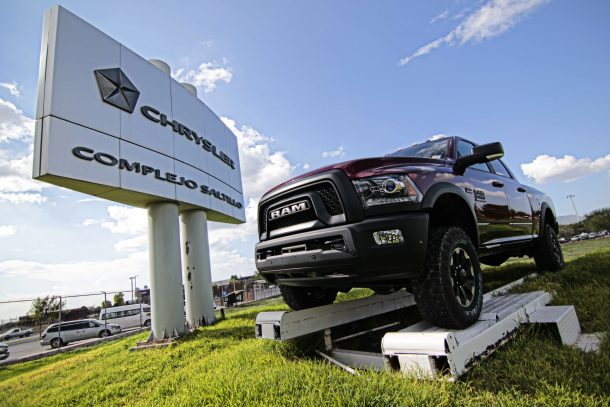

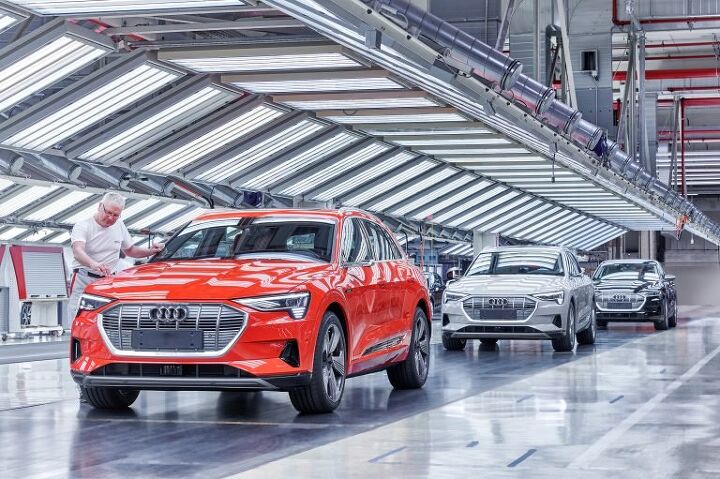

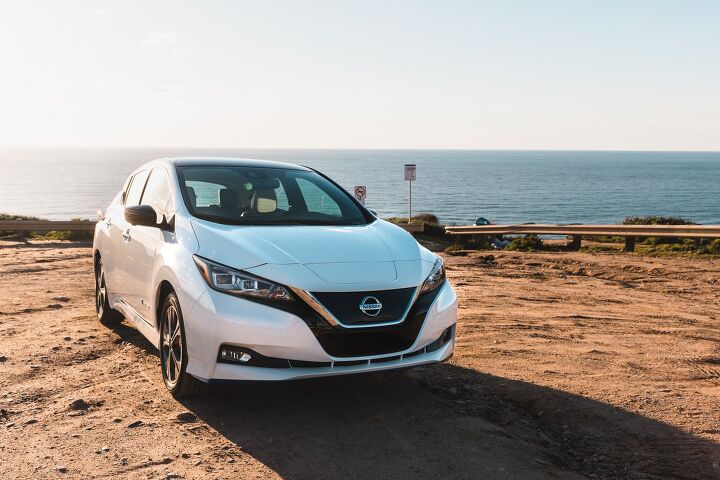
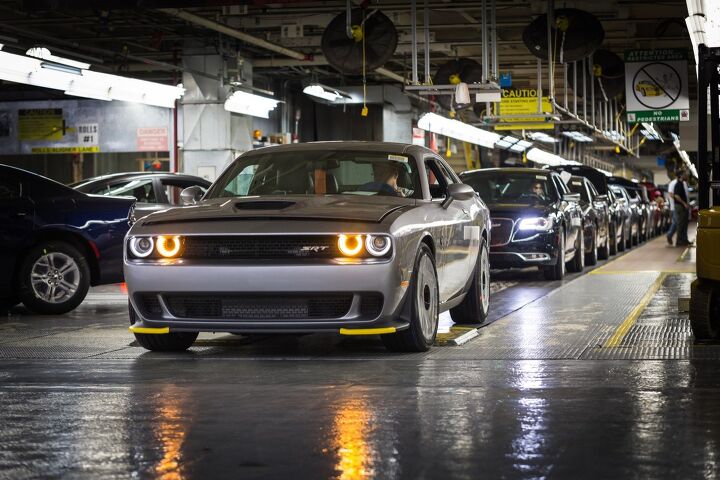
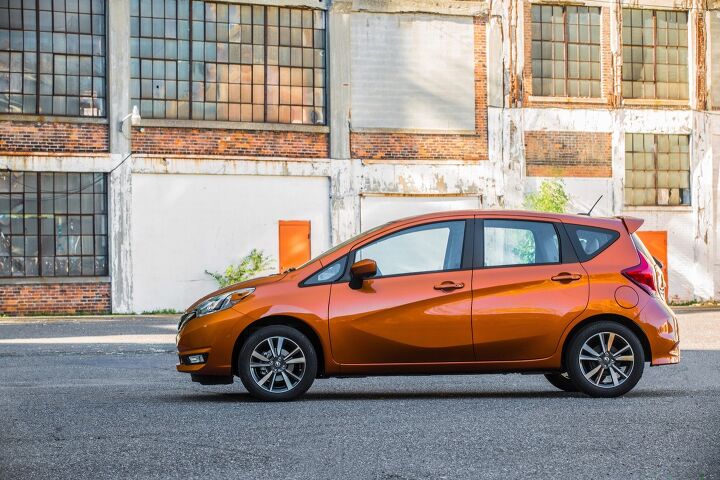
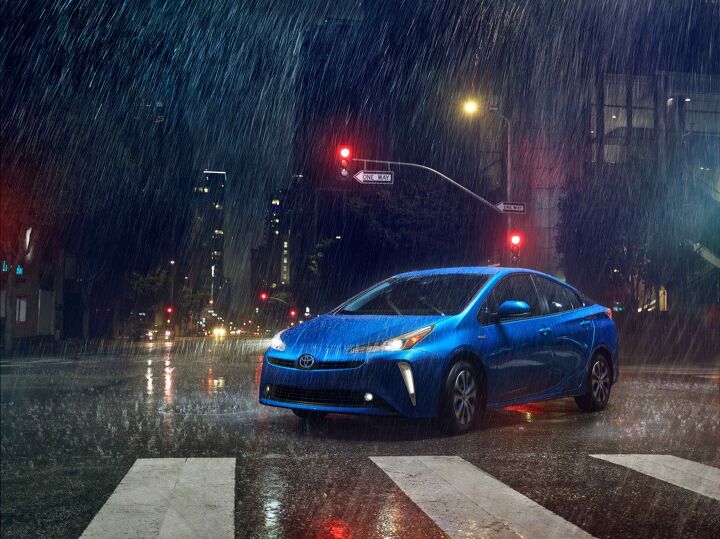
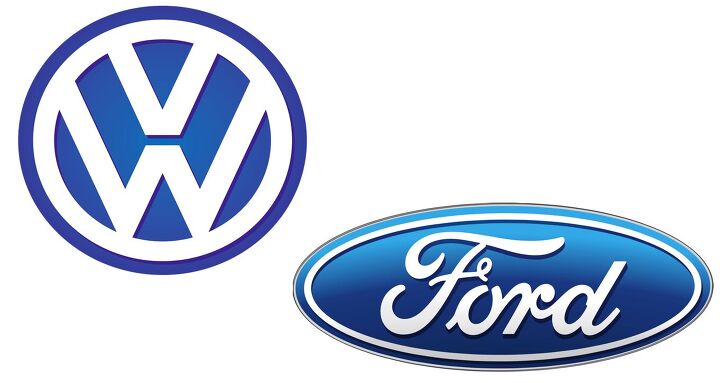


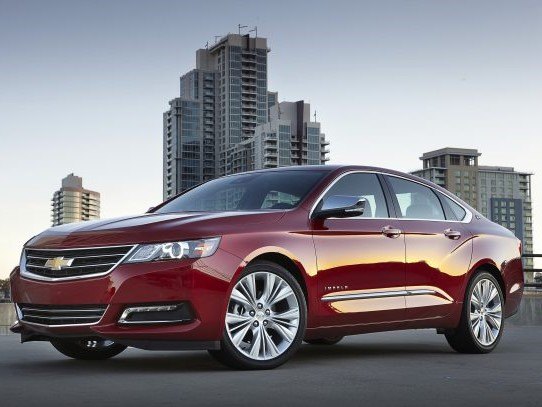












Recent Comments